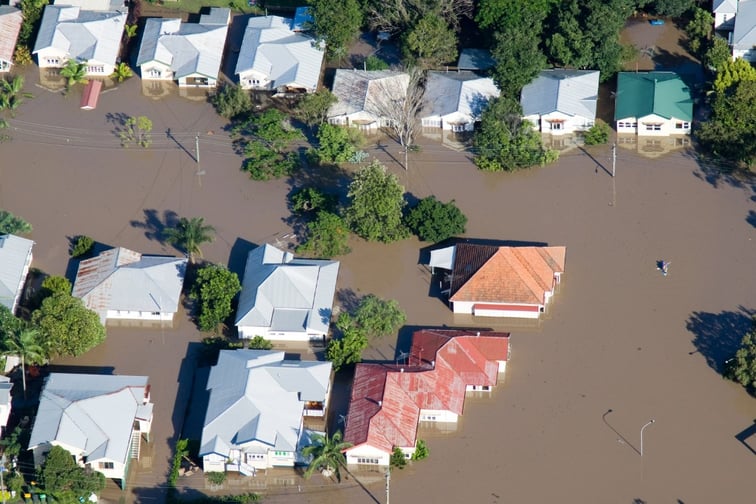

The severe flooding that has ravaged southern British Columbia in recent weeks has caused an estimated $450 million in insured damage, making it the costliest weather event in the province’s history, according to Catastrophe Indices and Quantification Inc. (CatIQ).
The floods, which were triggered by a weather system called “atmospheric river,” wreaked havoc in the province’s southwest over a two-week period beginning November 13, forcing hundreds of residents to evacuate their homes.
The government has since extended the state of emergency in the region to support recovery and relief efforts. But given the scale of the disaster, CatIQ predicts the overall economic losses to be much higher than the insured loss figures.
According to the Insurance Bureau of Canada (IBC), affected residents face one more major issue.
“While the insurance damage stemming from these flood events is significant, the sad reality is that many residents impacted were located in high-risk flood areas and floodplains where flood insurance coverage is not available,” said Aaron Sutherland, vice-president of Pacific and Western at IBC. “As a result, the overwhelming majority of costs for this disaster will be borne by government and taxpayers.”
“As we continue to see the increasing impacts of our changing climate, it’s clear much more must be done to create a culture of preparedness and to build our resilience to the risks we face,” he added.
To address this, Sutherland said that the bureau has been having discussions with the federal and provincial governments on how to better protect communities and manage the cost of flooding for high-risk residential areas across the country. The talks revolve around creating a residential flood insurance program, including the adoption of a public-private partnership model.
“This year, British Columbians have seen first-hand the devastating impact our changing climate can have, be it severe storms, wildfires or floods,” Sutherland said. “These disasters are also having an outsized impact on those most vulnerable and, as a result, we must greatly enhance our efforts to mitigate future climate change and to adapt to the new weather reality we face. Insurance can help individuals recover financially, but the human impact is often irreparable.”
British Columbia has been hit by several devastating weather events this year, causing hundreds of millions of dollars in insured losses. Apart from the damages caused by the recent flooding, the province has incurred $134 million in insured losses due to the windstorms that blew past Western Canada in January and $155 million from the wildfires last summer.
